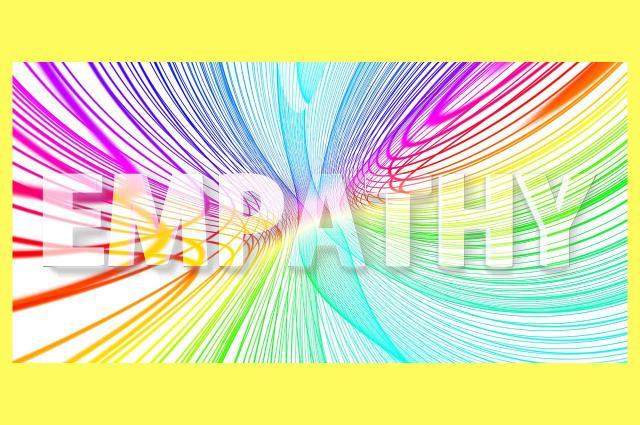First-Year Students Flex Their Empathy Muscles

Wolinsky’s fascination for understanding other people’s worlds and experiences through novels began when she was younger but has stuck with her throughout adulthood, providing her with deeper insight into emotional expression. The concept that human practices and beliefs are rooted in a simple, yet crucial, concept – empathy – is at the core of her course. As Wolinsky progressed through the world of academia, she found that the literature assigned in her own classes became more and more intellectualized, draining the content of much-needed human emotion.
Wolinsky is captivated by how empathy plays a role in daily life. Where can we see U.S. policies favoring the wellbeing of some people and not others? How can people so readily ignore the suffering of other individuals? When is an individual seen as past the point of redemption? These key questions are explored and challenged throughout the semester. “I decided that it would be helpful to first year students to learn about empathy, both because of the current political climate in the country and because empathy is really crucial in interpersonal relationships, making and keeping friends, and being able to engage in difficult conversations,” explains Wolinksy.
Every class begins with a song to set the mood, fostering an atmosphere that asks students to focus on the here and now. While the music is playing, students are encouraged to think about someone they care about and are grateful for, and to send a specific email or text highlighting a positive aspect of that person. This exercise consciously encourages empathetic behavior.
Some of the topics discussed in Flex Your Empathy Muscles include police brutality and racial injustice, cancel culture, the Syrian civil war, and immigration policy, which are explored through class readings and discussions. Every class has designated journaling time for students to reflect on what they’ve read for that week's class. In addition, there are two slightly longer assignments throughout the semester, which reflect on a book chosen from a list suggested by Wolinsky – ranging from The Bluest Eye to The Handmaid’s Tale – all of which contemplate empathy in human nature.
To close out the semester, students will research a topic of interest to them and write a reflective paper on how empathy can be used to resolve issues and polarization in their chosen subject. In addition to the paper, students will prepare ten minute presentations on their topics to share with the class. Wolinsky hopes that with such a diverse array of readings, assignments, and conversations, students will take away that most issues are not binary; that “almost everything has nuance.”
Along with extensive work that she has done to ensure the success of the course, Wolinsky has taken a lesson on empathy herself in the midst of the pandemic. To make accommodations, she has cut back on the student workload, adjusted formatting of certain assignments, and, unfortunately, has cancelled all planned field trips into Boston. Even with such adjustments and challenges, the class has creatively pushed the limits of pandemic-era learning. With Google Jamboards and a heightened need to practice empathy more often, Flex Your Empathy Muscles is making the most of unusual circumstances.
Written by Grace Prendergast, Class of 2023
Published November 23, 2020